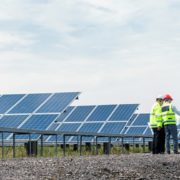Archive | Finance sector development RSS feed for this section
Economics, Environment, Finance sector development, Governance and public sector management
 Economics, Environment, Finance sector development, Governance and public sector management
Economics, Environment, Finance sector development, Governance and public sector management
 Economics, Finance sector development, Industry and trade, Information and Communications Technology
Economics, Finance sector development, Industry and trade, Information and Communications Technology
 Climate change, Finance sector development, Subjects
Climate change, Finance sector development, Subjects
 Economics, Finance sector development
Economics, Finance sector development
 Economics, Finance sector development
Economics, Finance sector development
 Climate change, Energy, Finance sector development
Climate change, Energy, Finance sector development
 Economics, Finance sector development, Health, Social development and protection
Economics, Finance sector development, Health, Social development and protection
 Climate change, Finance sector development
Climate change, Finance sector development
 Climate change, Finance sector development
Climate change, Finance sector development

Supporting blue skies through green development loans

Close collaboration, innovative project design, and technical and management capacity building have supported green development and air quality improvement by the People’s Republic of China (PRC) and the Asian Development Bank (ADB).
Central banks lead the way on green monetary policy

Central banks are becoming increasingly aware of the importance of considering climate change risks, such as physical and transition risks, and some have already launched monetary policy initiatives within the mandate of price stability.
Harnessing digitalization on the path to sustainable economic development in Asia

Digitalization is helping to transform economies by enhancing economy-wide competitiveness and productivity, with trade being an important channel. The use of big data and the emergence of online platforms have further bolstered the progression of the digital economy, particularly in Asia.
COP26-aligned fiscal policy instruments for boosting Asian green growth, sustainable recovery
By Nella Sri Hendriyetty, Jacqueline Cottrell, Alexander Boden and Misuzu Nakamura. Posted October 5, 2021

The final months of 2021 will be a crucial time for climate policy. At the United Nations Climate Change Conference (COP26) in Glasgow from 31 October to 12 November, countries will need to come forward and show that they take the commitments that they made in Paris seriously and that they will reduce GHG emissions such that we reach net zero by 2050 to meet the climate targets of the Paris Agreement. Carbon pricing and other fiscal policies will play a critical role.
Should emerging Asia worry about a “taper tantrum” post-COVID-19?

With an improved growth outlook in the United States (US) in the second half of 2021 as the economy recovers from the coronavirus disease (COVID-19), in part related to the substantial fiscal stimulus in the US introduced at the start of 2021, the Federal Reserve (Fed) is on course to slow down its asset purchases program, or so-called quantitative easing (QE) tapering.
Foreign holdings of local currency bonds: A double-edged sword for emerging Asia

Local currency bond markets (LCBMs) have continued to develop in emerging Asian economies since the early 2000s, with foreign investor participation rising markedly since the global financial crisis of 2007–2008. LCBMs help to enhance domestic financial stability by enabling governments and companies to borrow in domestic currency.
Green bonds show promise for financing energy-efficient buildings in Southeast Asia

The member countries of the Association of Southeast Asian Nations (ASEAN) have been experiencing a surge in energy demand due to their growing populations, expanding economies, and rising living standards. One reason for this rising energy demand is increased activity in the building and construction sector.
Remittance inflows giving resilience to Bangladesh’s rural economy amid COVID-19

While the World Bank has identified Bangladesh as one of only three big economies that had increases in remittance inflows in 2020, along with Pakistan and Mexico (Ratha et al. 2020), and remittances have long made up a substantial share of people’s income in the country, preliminary results from a recent study supported by the Asian Development Bank Institute (ADBI) finds surprising resilience for remittance inflows into the rural economy during the first wave of the coronavirus disease (COVID-19) pandemic in Bangladesh.
Which financing sources matter for private investment in renewable energy in Asia?

The mobilization of climate finance is critical for limiting global warming to within 1.5°C and preventing catastrophic climate change (IPCC 2018). Annual green investments totaling $1.5 trillion are needed (United Nations 2017). Despite the falling cost of renewable energy technologies, energy investments remain dominated by investments in fossil fuels. In Asia and the Pacific, annual investments fell after 2017 and until 2020 remained below the 2017 level.
ESG investment for promoting net-zero carbon emissions

ESG investment aims to encourage companies to consider environment (E), social (S), and corporate governance (G) issues by raising their long-term corporate value. It is becoming indispensable for filling the funding shortfalls needed to achieve the Paris Agreement’s goal of limiting the global temperature increase this century to well below 2 degrees Celsius above preindustrial levels, and desirably within 1.5 degrees Celsius, as well as to encourage the transformation of corporate behavior toward net-zero emissions.


Search
Subscribe / Connect to Asia Pathways
Subjects
- Accelerating Progress in Gender Equality
- Addressing Remaining Poverty and Reducing Inequality
- Agriculture and natural resources
- Capacity development
- Climate change
- Economics
- Education
- Energy
- Environment
- Finance and Innovation
- Finance sector development
- Gender
- Globalization and Economic Stability
- Globalization, Environment, and Climate Change
- Governance and public sector management
- Health
- Human Capital Development for Inclusive Growth and Shared Prosperity
- Industry and trade
- Information and Communications Technology
- Infrastructure
- Making Cities More Livable
- Miscellaneous
- Population
- Poverty
- Private sector development
- Promoting Rural Development and Food Security
- Regional cooperation and integration
- Sanitation
- Social development and protection
- Strengthening Governance and Institutional Capacity
- Subjects
- Tackling Climate Change, Building Climate and Disaster Resilience, and Enhancing Environmental Sustainability
- Transport
- Uncategorized
- Urban development
- Video Blog
- Water
Recent Posts
- Scaling Up Dietary Diversity for Health, the Environment, and Food Security in Asia
- Preparing for LDC Graduation: Sustaining Development and Integration amid Changing Trade Schemes
- Facing the Heat: Addressing the Health Impacts of Extreme Temperatures
- Harnessing Energy Transition to Power Rural Development and Female Empowerment
- The Promise and Perils of Mother Tongue-Based Education




Recent Comments